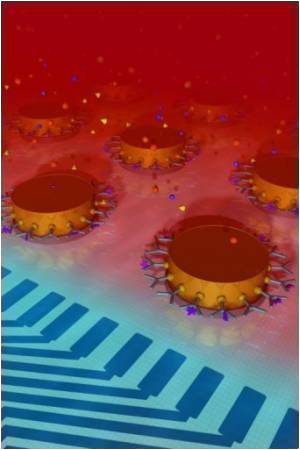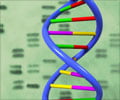A novel process has been invented by University of Arkansas researcher that preforms DNA analysis thousands times faster than traditional methods.

Donald K. Roper, associate professor of chemical engineering, explained that the ultimate goal of his research is to develop a credit-card-sized device to be used in a doctor's office or at a crime scene to quickly analyze samples of DNA.
To analyze DNA, scientists must often make a tiny sample large enough to work with. To do this, they use a process called polymerase chain reaction, or PCR.
Roper's process, which he developed while working at the University of Utah, uses gold nanoparticles to increase the efficiency of the chain reaction.
During the reaction, strands of DNA are heated and cooled in cycles. When the samples are heated, the two strands of a DNA double helix come apart, and when the temperature is lowered, an enzyme called polymerase zips each strand to other, complementary strands, forming two new DNA helixes.
These copies are then heated and cooled again, doubling each time until the desired amount of DNA has been produced.
Advertisement
Roper has patented the process.
Advertisement












